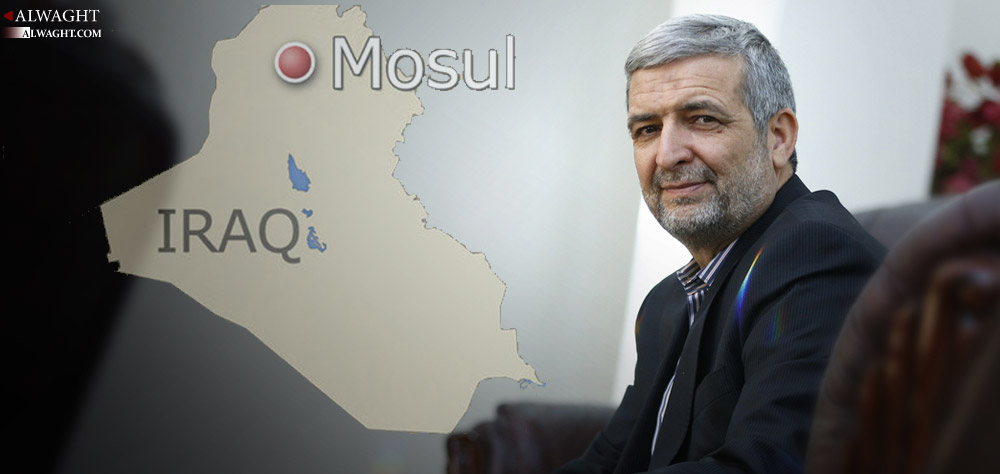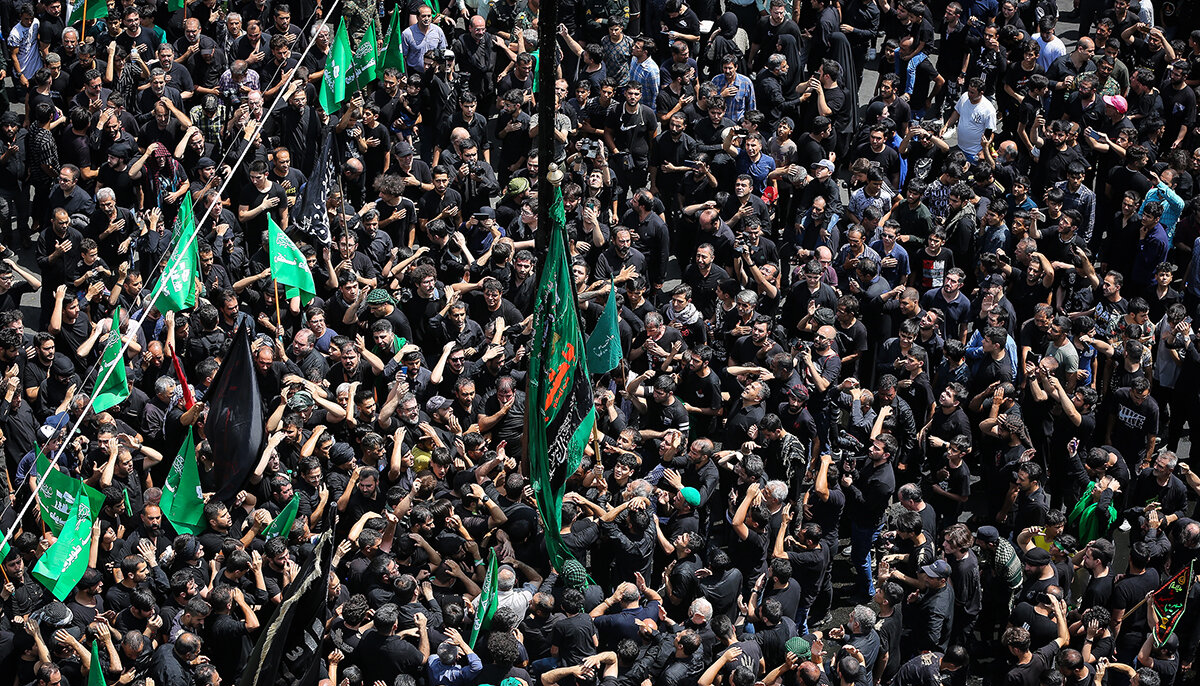Alwaght- Alwaght has hosted a debate titled “Iraq’s Outlook after Liberation of Mosul”. Mr. Hassan Kazemi Qumi, the one-time Iranian ambassador to Iraq, and other political analysts and Iraq experts shared their ideas on the topic.
Mr. Qumi in the initial part of his talks has highlighted the difficulties associated with liberation of the northern Iraqi city of Mosul, continuing his comments by elaborating on some characteristics of the operation. He noted that the Mosul recapture operation is of greater size in comparison to other operations so far conducted in the country, and that the campaign is set to free from the hold of the terrorists an area of nearly 14,000 square kilometers.
The second matter is the topographic feature of the region that brings about sizable sensitivity. Due to its long time of existence in the region, the ISIS terrorist group has managed to set up strong defense equipment in Mosul. By doing so, it established roadblocks to stop the military offensives aimed at taking the city back.
The third feature is associated with the human factor. The ISIS leaders can take advantage of Mosul population as human shield against the external advancing forces as a considerable number of the people live in the city. The big number of this city’s population will act as a factor influencing a change of a majority of operation tactics. This makes it harder for the liberating forces to easily enter the city and open artillery fire that may hit the civilians. All participating forces must do their best job to minimize the human tolls in the crossfire.
The fourth feature of Mosul liberation assault is that the operating forces are purely Iraqi. Perhaps it can be boldly said that this operation with such features is unmatched of its kind. The operation is jointly launched by forces from the army, police, counterterror units, Public Mobilization Forces, Kurds, and the Shiites. Moreover, the field command in the operation is held by Iraqi forces and commanders. Upon launching the operation, Baghdad announced that there was no need for foreign boots on the ground. The liberating operation in Mosul with such a big amount of variance and complexity is not simply a military campaign, rather, the conflict is taking place in a region where two opposite forces are fighting each other and a military, security, intelligence, and social work is being done all at once.
The former Iranian ambassador to Baghdad denied that liberation of Mosul will bring about thorough security across Iraq. He drew the future of the country following retaking of Mosul as follows: the insecurity will remain prevailing in Iraq, though it reshapes from violent and serious operations to “island and destabilizing attacks.” Such measures will cover northern and central parts of Iraq, aiming to push for a destabilizing and chaos-causing strategy in the region that serves the US and Saudi Arabian goals. Iranian toehold in Iraq is not the sole concern of the Saudis. So, insecurity in Iraq in post-ISIS time will continue existing. But the military scene's developments are attention-getting.
The Americans will not allow a democratically-elected government to do its job in Iraq. On the other side, the operation to take on ISIS will lead to much more professional Iraqi military, albeit this is not going to be easy. Professionalization of the country’s military is a positive outcome of such a confrontation with terrorists of ISIS. But because the destabilizing factors remain rampant across Iraq, the insecurity and Qatari and Saudi Arabian support for terror groups remain in place. So, ongoing insecurity is the top prediction for a post-Mosul liberation Iraq.
If the post-ISIS atmosphere will be guided toward calm, this will lead to increased popular demands. Should there grows no capacity to deal with such an atmosphere, the ground will be prepared for eruption of protests and popular movements. The way at that time will be paved for the destabilizing forces to exploit the people’s demonstrations. Therefore, grown popular demands will be the second probability in a post-liberation Iraq.
Mr. Qumi has also had his say on the prospective US goals and approaches in Iraq after liberation of the capital of Nineveh province, saying that the Americans are seeking to legalize their military presence in Iraq as Iraq is not a country where Washington will withdraw all of its forces after ISIS obliteration. So, the Americans are expected to quest for the following objectives:
- Firming up the American military presence in Iraq. The US politicians are expected to pressure the Iraqi officials to approve laws in interest of American forces' stay in Iraq.
- Boosting American influence in Iraq’s defense and security mechanism. This requires the American side to plant pawns in Iraq’s defense and security apparatus.
- The Americans could sign heavily binding military pacts with Baghdad to bind the Iraqis to the US. The Americans have already kicked off such a process and their success in their schemes much depend on a set of specific factors.
Mr. Qumi commented on the Baghdad-Erbil ties in the post-Mosul liberation atmosphere, maintaining that after recapture of the city there must be caution to preclude some sides' moves that want to sow division between Erbil and Baghdad. Additionally, the sides should avoid accentuating the feud over the contested areas. Iraq’s partition plan that has the backing of the Sunni minority should be stifled, because it will crack the national unity in favor of federalization and creating more autonomous regions. So Iraq has to watch the situation between Baghdad and Erbil and the federalization plans as well.



























